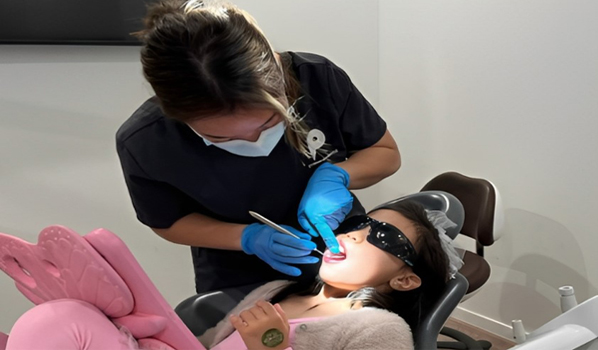Teeth Whitening: What Works at What Doesn’t?
A lot of people are concerned about teeth whitening, and we can understand why—a great smile is a big part of that all-important first impression! But, many of those interested in teeth whitening often turn to DIY methods which can actually be harmful for their teeth.
There are many risks involved in whitening your teeth yourself, and it could end up costing you more in the long run. Today, we’re going to talk about a few common DIY teeth-whitening procedures, and why they may actually be more dangerous than you might realise.
Acid-based whitening foods can weaken teeth
Some foods, like strawberries, orange peels, and apple cider vinegar do indeed make your teeth appear brighter. However, these acidic foods shouldn’t be used for long-term teeth whitening, as the acidic elements that are found in these foods can eat away the enamel of your teeth, weakening them and causing them to age faster.
Eating these foods normally is fine, but some people may resort to rubbing orange peel or other brightening foods on their teeth, and this is when it can lead to problems. After all, a well-balanced diet is still a contributing factor in improving your oral health!
Abrasive brushing can help grow bacteria
Brushing your teeth every day to get rid of stains and to maintain good oral health is common knowledge. Abrasive brushing, on the other hand, is not ideal for teeth whitening. Brushing your teeth with sea salt, or even toothpaste that features a scrub or abrasive ingredients can create microscopic scratches on your teeth. Micro-abrasions can then become a breeding ground for bacteria that cause tooth decay.
Why professional teeth whitening is your best bet
Given that you only have one set of adult teeth in your lifetime, they’re too valuable to risk, so it’s better to leave teeth whitening to the experts. Your dentist can offer many options when it comes to whitening your teeth safely and professionally. These include bleaching, or fitting porcelain veneers. Whatever the whitening method may be, you should always make sure that your dentist administered it, dispensed it to use at home, or they’ve prescribed an over-the-counter solution.
The best possible way to whiten your teeth is to avoid stains in the first place! Avoiding sugary foods, quitting smoking, flossing, and brushing your teeth twice daily is the best—and cheapest— way to keep your smile looking sweet. Good hydration and a healthy diet can also keep your teeth healthy and bright from the inside out.
Talk to your dentist to discuss your options today
Next time you’re at a dental check-up, discuss with your dentist the whitening methods they recommend. Your dentist can recommend a suitable and safe treatment plan that specifically addresses your needs. Primecare Dental offers professional teeth whitening procedures to fix tooth stains and discolorations—give us a call today to find out more!







